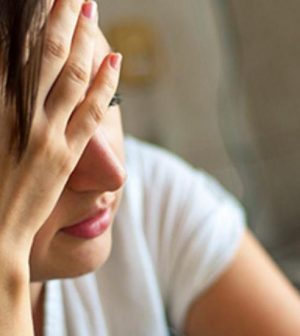- Recognizing the Signs of Hypothyroidism
- 10 Strategies to Overcome Insomnia
- Could Artificial Sweeteners Be Aging the Brain Faster?
- Techniques for Soothing Your Nervous System
- Does the Water in Your House Smell Funny? Here’s Why
- Can a Daily Dose of Apple Cider Vinegar Actually Aid Weight Loss?
- 6 Health Beverages That Can Actually Spike Your Blood Sugar
- Treatment Options for Social Anxiety Disorder
- Understanding the Connection Between Anxiety and Depression
- How Daily Prunes Can Influence Cholesterol and Inflammation
Less Than 1% of People Who’ve Had Severe COVID Get Re-Infected

People who have had severe COVID-19 and worry about going through another bout of it can relax: New research finds that less than 1% of people who’ve had a severe coronavirus infection get re-infected.
For the study, University of Missouri researchers analyzed data from more than 9,100 COVID-19 patients at 62 health facilities in the United States.
Only 0.7% of patients with severe COVID-19 infection contracted the virus a second time, with a mean re-infection period of 116 days. Of those who were re-infected, 3.2% died.
Non-white patients had a higher risk of re-infection than white patients, according to the study published recently in the journal Clinical Infectious Diseases.
“Our analysis also found asthma and nicotine dependence were associated with re-infection,” said lead researcher Dr. Adnan Qureshi, a professor of clinical neurology at the University of Missouri’s School of Medicine, in Columbia.
“However, there was a significantly lower rate of pneumonia, heart failure and acute kidney injury observed with re-infection compared with primary infection,” Qureshi added in a university news release.
People were considered to be re-infected if they had two positive tests more than 90 days after the initial infection resolved, as confirmed by two or more consecutive negative tests.
“This is one of the largest studies of its kind in the U.S., and the important message here is that COVID-19 re-infection after an initial case is possible, and the duration of immunity that an initial infection provides is not completely clear,” Qureshi said.
More information
The U.S. Centers for Disease Control and Prevention has more on COVID-19 re-infection.
SOURCE: University of Missouri-Columbia, news release, June 15, 2021
Source: HealthDay
Copyright © 2026 HealthDay. All rights reserved.










